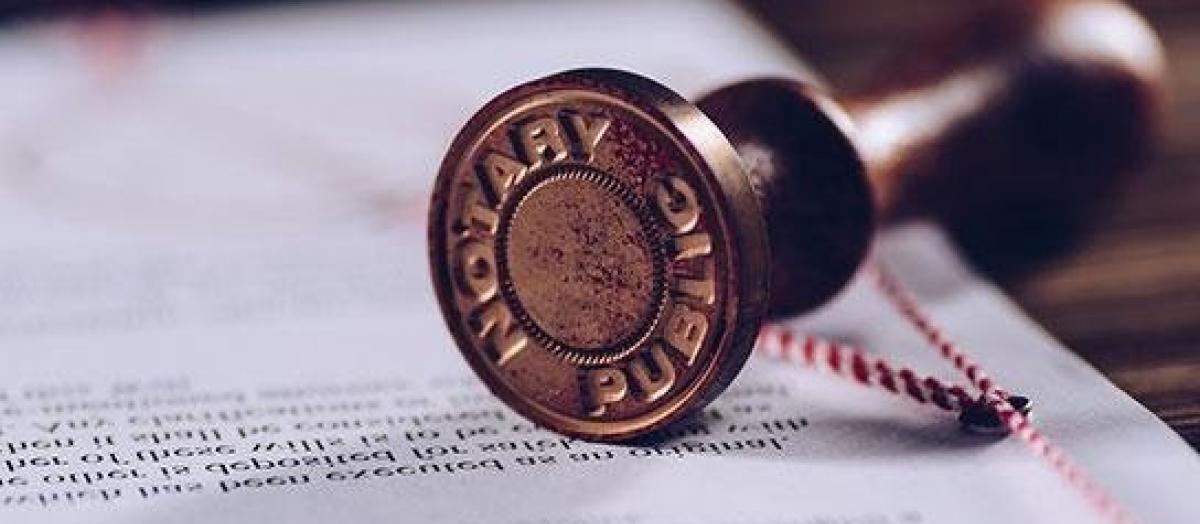DIRCO Regulations Demystified: A Guide to Diplomatic Protocol
DIRCO Regulations Demystified: A Guide to Diplomatic Protocol
Blog Article
Debunking Notarial Job: Simplifying the Duty and Significance of Notaries
In the detailed web of legal paperwork and confirmation, notaries stand as columns of assurance and credibility. Their role, typically shrouded in enigma for many, brings substantial weight in ensuring the credibility and stability of critical documents. As guardians of legality and truth, notaries play a critical part in our society, yet their work is not always fully comprehended. By unwinding the intricacies bordering notarial methods and dropping light on the value of their acts, a clearer understanding emerges of the important role notaries play in supporting the material of legal and contractual arrangements.
The History of Notarial Work
Just how did notarial job develop over time to come to be an important part of lawful and company purchases? The background of notarial work go back to ancient human beings, where scribes played a vital role in videotaping crucial information and confirming papers. As cultures proceeded, the requirement for a more formalized system to ensure the credibility of agreements occurred. This resulted in the growth of notaries, people designated by the state to function as neutral witnesses in legal matters.
During the Center Ages, notaries acquired prominence in Europe, with their features increasing to include composing legal files, licensing trademarks, and preserving records. The surge of global trade even more highlighted the relevance of notarial job in confirming agreements and contracts throughout borders.
In the modern-day period, notaries proceed to play a vital function in legal and service purchases by verifying identities, verifying the credibility of documents, and avoiding scams. Their function in accrediting the legitimacy of arrangements includes a layer of security and depend the ever-evolving landscape of commerce and law.

Tasks and Obligations of Notaries
The historical evolution of notarial job from old people to the modern era has actually shaped the distinct obligations and duties that notaries promote in legal and business purchases today. Notaries play an essential function in confirming the credibility of papers and the identity of signatures. Among their primary responsibilities is to witness the finalizing of essential documents, such as agreements, actions, and wills, to guarantee that all events are becoming part of contracts knowingly and voluntarily. Notaries also validate that notaries are of audio mind and not under duress or threat.
Moreover, notaries are entrusted with administering affirmations and vows, which are crucial in legal process and the implementation of affidavits. They accredit duplicates of initial documents, offering assurance to organizations that the duplicates hold true replicas of the originals. Notaries should preserve precise documents of all purchases they look after to ensure transparency and responsibility. Generally, the obligations and duties of notaries are necessary in protecting the honesty and validity of different records and purchases.
Notarial Certificates and Signatures
Exemplifying thorough focus to information, notarial certificates and signatures work as important parts in confirming the credibility of legal files. Notarial certificates typically contain crucial you could look here details such as the day of notarization, the names of the signatories, a summary of the record, and the notary's main seal. These certificates provide a clear document of the notarial act, making certain that the paper can be easily recognized and mapped back to the notary who looked after the procedure.
Signatures play a crucial function in notarial job, as they symbolize the arrangement and authorization of the events involved. Notaries very carefully witness the signing of documents to confirm the identity of the signatures and confirm that they are authorizing of their own free will. By fastening their official seal and trademark to the document, notaries accredit that the necessary treatments have been adhered to and that the paper is valid and enforceable.
Fundamentally, notarial certificates and signatures are the characteristic of authenticity in lawful transactions, supplying guarantee to all celebrations entailed that the files are reputable and binding.
Value of Notarial Acts

Registration Refine Explained
Describing the registration procedure supplies clarity on the crucial steps involved in verifying lawful documents. The notarization procedure generally begins with the individual providing the file to a notary public. The notary then confirms the endorser's identification through acceptable identification methods. Once the identification is confirmed, the notary ensures that the individual authorizing the file does so willingly and without any coercion.

Verdict

Notarial certifications typically consist of critical info such as the date of notarization, the names of the notaries, a description of the file, and the notary's main seal. These certifications offer a clear document of the notarial act, guaranteeing that the paper can be conveniently determined and mapped back to the notary that looked after the Continued procedure.
By affixing their main seal and signature to the record, notaries accredit that the necessary treatments have actually been complied with and that the record is legitimate and enforceable.
By validating the identity of the signatories, validating their desire to get in right into the arrangement, and licensing the day and location of the finalizing, notaries play a crucial function in upholding the legitimacy of legal papers.After the paper is authorized, the notary will certainly fasten their official seal or stamp onto the document.
Report this page